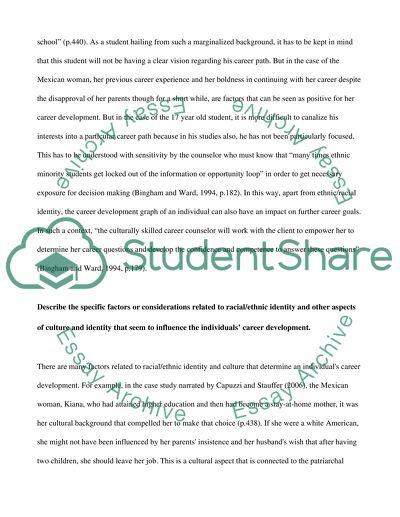Cite this document
(“Racial/Ethnic Identity and Career Development Research Paper”, n.d.)
Retrieved from https://studentshare.org/psychology/1430162-how-racialethnic-identity-and-career-development-affect-career-counseling-goals-and-objectives
Retrieved from https://studentshare.org/psychology/1430162-how-racialethnic-identity-and-career-development-affect-career-counseling-goals-and-objectives
(Racial/Ethnic Identity and Career Development Research Paper)
https://studentshare.org/psychology/1430162-how-racialethnic-identity-and-career-development-affect-career-counseling-goals-and-objectives.
https://studentshare.org/psychology/1430162-how-racialethnic-identity-and-career-development-affect-career-counseling-goals-and-objectives.
“Racial/Ethnic Identity and Career Development Research Paper”, n.d. https://studentshare.org/psychology/1430162-how-racialethnic-identity-and-career-development-affect-career-counseling-goals-and-objectives.


